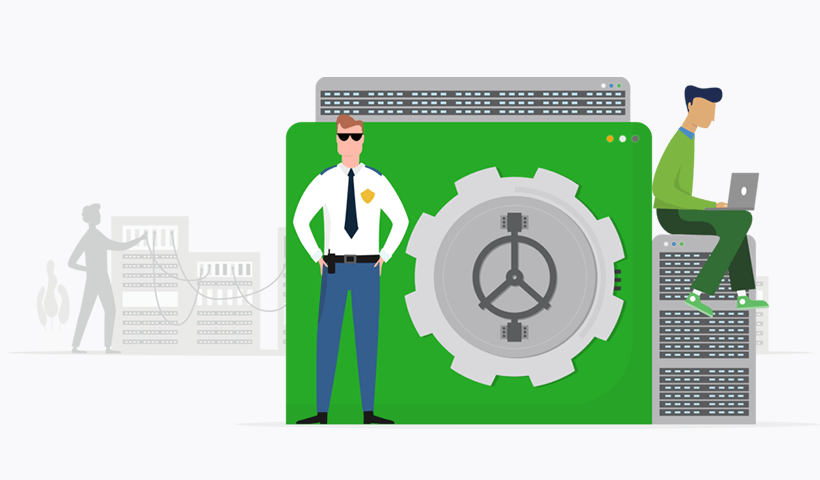From time to time we publish guest posts about topics that are important to us. This is one of those times. GDPR is a vital data protection law that protects those in the European Union. While the views of guest posts are not always directly aligned with PaperCut’s, we believe it’s important to share information on important topics. Editor.
Faced with the global pandemic, the vast majority of businesses switched to remote labor, at least partially. The pandemic has also emphasized the importance of greater data protection. There are several security threats connected with using contemporary technology for remote work.
Unfortunately, workers are frequently unaware of the significance of data security. Furthermore, suitable methods for protecting personal data are lacking. Organizations often avoid investing in security and ignore personal data protection due to real concerns about financial liquidity.
However, it is more vital than ever to follow data protection regulations. Let’s look at some of the reasons why.
Remote work comes with data privacy issues
In a remote work setting, personal data is much more vulnerable to breaches.
A personal data breach, as defined by GDPR , is any security breach resulting in unintentional or unlawful deletion, loss, alteration, unauthorized disclosure, or access to personal data. This refers to all data that a corporation stores, transfers, or otherwise processed.
This means that a breach occurs not just when information is released and accessed by unauthorized persons (for example, as a consequence of a hacker assault) but also when a firm loses access to data, either via document loss or the loss or destruction of digital data storage devices.
So, what are circumstances related to remote work that expose businesses to such data security threats ?
These situations are primarily the consequence of external sources such as staff devices, unprotected apps, and a lack of understanding about the need for data protection and proper cybersecurity practices.
These are external variables that, when properly handled, may result in major benefits like cost savings, increased productivity, and increased employee satisfaction. They do, however, expose companies to dangers such as data breaches, data loss, and data leakage if they are not well-managed.
The hazards outlined above are, without a doubt, many. However, this does not imply that the techniques for preventing them must be complicated or costly. On the contrary, it is worthwhile to think about critical solutions.
How to avoid these issues?
Clearly define data protection policies
If a business doesn’t have a personal data protection policy in place for remote employees, it should create one as soon as possible. To begin with, you should address the bare minimums required to meet the demands of your company while also ensuring compliance with current regulations. Once you’ve done that, you should introduce other, more granular data security policies.
These policies should address issues such as data retention periods, the encryption of sensitive data, record management, data breach prevention, and so on. For example, having a clearly stated email retention policy will assist your workers (and you) in avoiding potential violations of federal or state regulations. For example, some states have regulations mandating specific types of emails to be kept for a set period of time. A firm retention policy will specify how emails should be saved, how long they should be kept, and who will have access to them.
In your email retention policy, it should be specified how emails should be preserved. The systematic storing and retrieval of emails is known as archiving. With email archiving solutions , emails are saved in their original format, along with email metadata. This guarantees that emails can be promptly and readily identified.
Making sure employees are working on secure devices and networks
If remote workers use their personal devices for work, it is crucial to educate them on basic information handling concepts and to establish baseline security requirements for the devices and networks they use.
It is critical to ensure that the devices and networks used by your workers are adequately protected in order to prevent violating data protection regulations.
To ensure this, you should provide a set of security guidelines as well as practical suggestions for companies. Your workers should understand how to safeguard their devices (through antivirus, firewall, antispam protection, and so on) as well as how to secure their networks (with firewall, router, etc.).
You should also offer your staff a list of security software that they may use on their devices and recommend that they download and install it themselves.
Only using communication tools that are secure
Because they are not often built for business usage, free communication technologies such as email platforms and instant messengers may not provide an adequate level of data protection. The employer should recommend effective communication techniques.
The employer must guarantee that confidential information is kept private. Employees should be encouraged to always send emails in an encrypted format and to utilize other encryption methods as needed. This is especially critical when delivering sensitive material over public email networks.
Employee education and awareness is crucial
When it comes to data security, it is better to provide proper education to your employees and raise awareness before a problem occurs.
For instance, you should educate your workers about typical security dangers and inform them that they may be especially vulnerable to phishing efforts utilizing coronavirus-related clickable content in the coming days. They should also understand what to do in such a circumstance.
Your staff should be able to identify phishing emails and know what to do if they get one. They should understand how to detect malware, as well as what to do if they come across it. They should also be educated on common frauds, like fake software upgrades and updates.
Wrapping up
Remote working, when done correctly, can be extremely advantageous to both employees and businesses. It does, however, pose a number of security issues.
Malicious third parties can easily hack into remote employees. Employees frequently fail to comprehend security best practices due to a lack of face-to-face communication. Furthermore, remote employees frequently lack sufficient means for protecting their personal data.
You must offer sufficient security tools and educate your workers in order to avoid data breaches and maintain compliance with data protection regulations.




